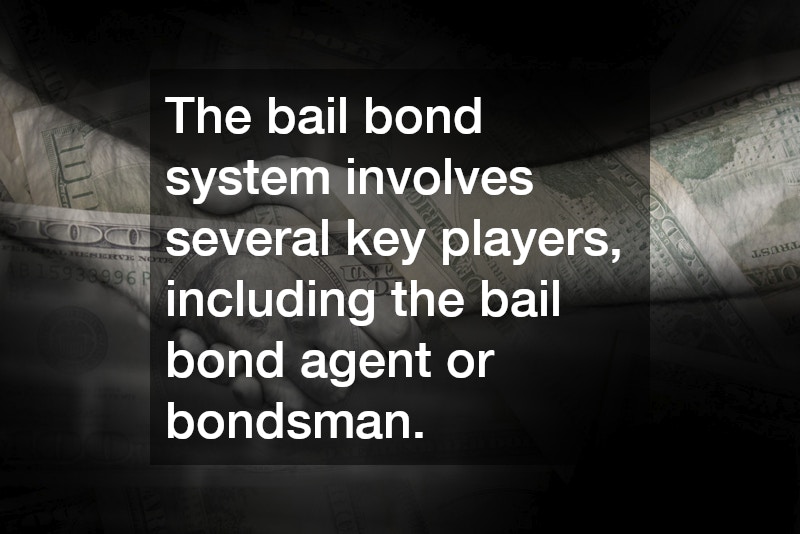Bail bond services are crucial components of the legal system, enabling defendants to secure their release from jail while awaiting trial. This article will delve into commonly asked questions about bail bonds, explaining their significance and how they function.
How Do Bail Bonds Work?
Understanding the Bail Bond Process
The bail bond process begins when a defendant is arrested and taken to jail. After a bail amount is set by the court, the defendant can obtain a bail bond to secure their release.
The defendant, or their family, contacts a bail bond agent to arrange for the bond. The agent charges a non-refundable fee, typically 10% of the total bail amount, to post the bail on behalf of the defendant.
Once the bond is posted, the defendant is released from jail under the condition they appear in court for all scheduled proceedings. If the defendant fails to appear, the bond may be forfeited, and further legal consequences can ensue.
Key Players in the Bail Bond System
The bail bond system involves several key players, including the bail bond agent or bondsman, who provides the financial backing for the bond. The defendant is the individual accused of a crime, responsible for adhering to court appearances.
Indemnitors, usually family or friends of the defendant, co-sign the bail bond agreement and assume financial responsibility if the defendant fails to appear in court. The synergy between these roles ensures the bail process functions smoothly.
It is crucial for all parties involved to understand their roles and responsibilities to avoid financial or legal repercussions. This partnership aims to guarantee that the defendant complies with court obligations while managing the risk for the bond agent.
What are the Types of Bail Bonds?
Common Types of Bail Bonds
There are several types of bail bonds, including cash bonds, where the full bail amount is paid in cash to secure release. Surety bonds involve a bail bond agent posting the bond and are more common when defendants can’t pay the full amount upfront.
Property bonds allow defendants to use property as collateral, which the court can seize if they fail to appear. Federal bonds apply to federal cases and often require a higher fee due to the complexities involved.
Each type of bond serves specific scenarios based on the defendant’s financial situation and the nature of the charges. Choosing the right type of bond is essential for defendants and their families to manage financial obligations efficiently.
Factors Influencing the Choice of Bail Bond
The choice of bail bond type is influenced by factors such as the severity of the alleged crime and the defendant’s financial status. Courts may decide on higher bail amounts for more serious offenses, affecting the decision to use a particular bond type.
The defendant’s ability to pay and access to collateral resources are crucial considerations. Local laws and regulations also play a vital role in determining which types of bonds are permissible and under what conditions.
Ultimately, the decision involves weighing the financial risk against the necessity of immediate release. Defendants and their indemnitors must evaluate their options carefully to select the most suitable bond type.
What Happens if a Defendant Fails to Appear in Court?
Consequences of Skipping Bail
If a defendant fails to appear for their court date, severe legal and financial consequences can follow. The bond is often revoked, and a warrant is issued for the defendant’s arrest, leading to additional charges.
Indemnitors may be financially liable for the full amount of the bail, heightening the seriousness of the situation. This responsibility emphasizes the importance of being present in court as agreed.
The legal repercussions can severely impact the defendant’s case and personal circumstances. Understanding these potential consequences can encourage defendants to adhere to their court commitments.
The Role of Bounty Hunters
Bounty hunters play a critical role in the bail bond system, especially when a defendant skips bail. These specialized agents are employed by bond agencies to locate and return bail jumpers to custody.
Equipped with legal authority, bounty hunters operate across state lines to track fugitives, employing skills akin to those of law enforcement. Their role is essential in maintaining the integrity and financial viability of the bail bond industry.
The necessity of bounty hunters highlights the risks bond agents undertake when securing a defendant’s release. By effectively retrieving fugitives, they fulfill a pivotal function in maintaining the system’s balance.
Understanding bail bond services is essential for defendants and their families to navigate the legal system effectively. This article has outlined the intricacies of the bail bond process, types, and consequences, emphasizing the importance of compliance and informed decision-making.
By recognizing the responsibilities and options available, defendants can better manage the challenges posed by legal proceedings. Ultimately, being informed empowers individuals to make choices that protect their rights and financial interests.

